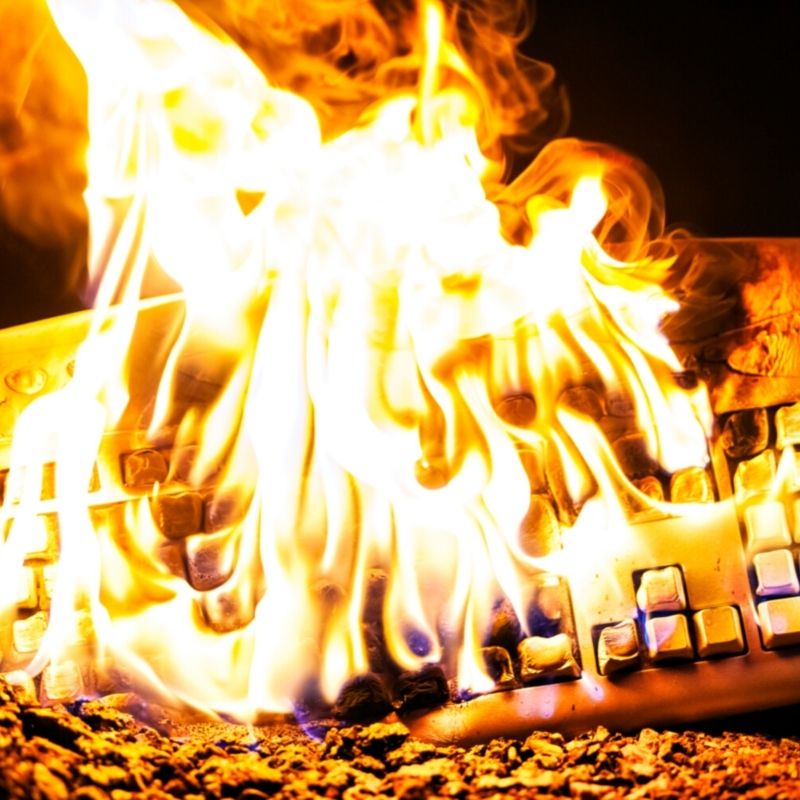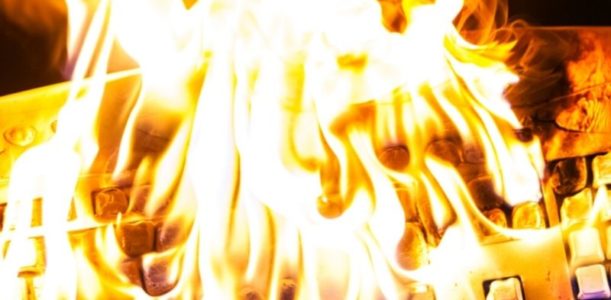
There are things that can be done in the workplace to help prevent fires and related injuries with some simple routine checks for fire hazards. Supervisors and/or safety inspectors can routinely perform the following tasks to help prevent fires in the workplace.
1) Clear the Clutter
Good housekeeping is an important part of any safety plan and is also key to preventing a fire hazard. Clutter, garbage, even dust that is permitted to accumulate in work areas increases the risk of becoming a fire hazard and poses other safety issues. It is important to keep all exit routes clear from clutter and make sure all safety signs are visible.
Employers should always provide employees with waste receptacles in convenient locations, the tools to keep their work areas clean and allow time during shifts for housekeeping. Quick checks of work areas, hallways and doorways can be a reminder to clear the clutter.
2) Have the Right Type of Fire Extinguishers
Fire extinguishers are the first line of defense in putting out a fire before it becomes an unmanageable blaze. The most common types of fire extinguishers are a multipurpose chemical fire extinguisher for Class A, B or C fires, although these will not work on every type of fire. Make sure that you have the right type of fire extinguisher on hand or ask your fire and life safety consultant for advice on equipping your facility with the right type extinguishers in the right areas.
3) Inspect Power Cords and Electrical Issues
Electrical distribution and issues with lighting equipment are the leading cause of industrial fires and are often one of the most cited violations from OSHA inspections. Overloaded outlets are a common cause of fires and are easy to spot and prevent. There should be routine checks of all electrical cords looking for frays or tears and inspections to ensure that electrical panels are clear from clutter.
4) Properly Store Chemicals
Just about any business operates with at least a handful of various hazardous chemicals stored on their site. It is important to know the properties of all chemicals, to have safety data sheets (SDS) available and to train employees on the proper handling and storage of all chemicals. Special care should be taken to ensure that no incompatibilities occur with storage or usage, that chemicals are stored far away from any ignition source and within the correct temperature range.
5) Inspect Smoke Detectors
Smoke, gas, and carbon dioxide detectors must be inspected and tested regularly to ensure they are in proper working order and will function correctly when needed. Smoke detectors are often the first notification to occupants that a fire exists. Your fire safety provider should conduct your required inspections with their regularly scheduled fire safety services, although regular internal inspections should also be conducted.
HRSS Inspections Important for Fire Prevention
High Rise Security Systems provides commercial fire alarm inspections to help businesses ensure their detectors are working properly along with the entire fire alarm system while alerting building owners to potential hazards. Regularly scheduled fire alarm inspections reveal any problems caused by corrosion, humidity, or voltage issues. Inspecting and testing all aspects of your commercial fire alarm system is critical to protect your building and occupants.
HRSS is a leading fire and security provider in the Chicago area with extensive knowledge of all fire and life safety code regulations. We offer fire alarm consulting services as well as UL listed equipment, testing, repairs, maintenance, and inspections. Contact us to learn how to prevent fire hazards in your workplace.



